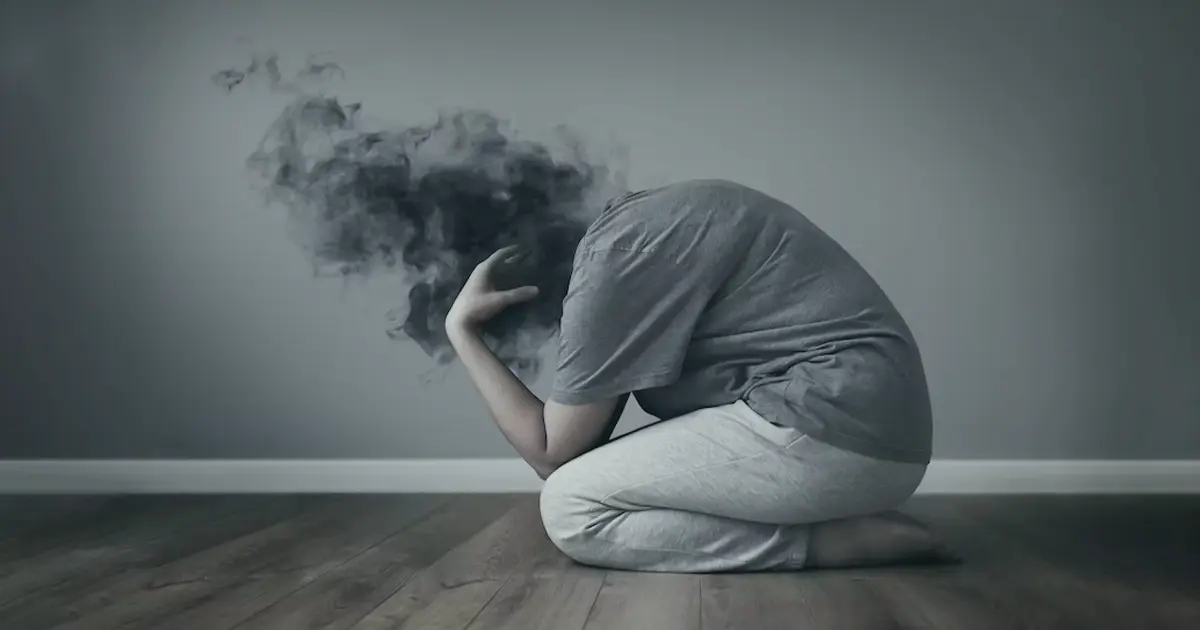Depression is a serious but unfortunately commonly found mental health condition affecting millions of people around the world. It has intense effects on emotions, thoughts, and behaviors yet it often goes unnoticed. With this blog we aim to raise awareness of the symptoms, causes and treatments for depression as people are not very familiar with it. By understanding the symptoms and treatments we can reduce stigma and support individuals facing this condition.
Symptoms of Depression
Depression symptoms can vary for every individual, but these symptoms are often known to disrupt daily life by affecting their relationships, work, and overall health. The first step to address this condition is understanding its symptoms. Some commonly known symptoms are:
Persistent Sadness or Low Mood
The individual showcases continuous feeling of sadness and hopelessness is an indicator of stress. Temporary sadness goes away after some time but in anxiety this feeling lingers for weeks or even months.
Loss of Interest in Activities
Another common symptom is losing interest in activities that you once used to enjoy. The individual gradually starts becoming uninterested in hobbies, socializing, or even daily tasks which can lead to isolation.
Changes in Appetite or Weight
Depression also impacts on the individual’ appetite. They either experience increased or decreased appetite, which can either lead to weight gain or weigh loss varying on how the individual feels.
Sleep Disturbances
Individuals with stress and anxiety also complain of many sleeping issues like insomnia (difficulty sleeping) or hypersomnia (excessive sleeping), which causes exhaustion. These changes impact physical health and daily functioning as well.
Fatigue and Low Energy
Depression causes consistent tiredness that doesn’t go away even after rest. Individuals with stress find it challenging to complete their basic everyday tasks too because of physical and mental exhaustion.
Feelings of Worthlessness or Guilt
Depression causes negative thoughts which makes people feel guilty, worthless or self-sabotage.
Physical Symptoms:
Some individuals also experience physical pain in different forms like headaches, stomach issues, or muscle aches which can worsen with stress.
Causes of Depression
It is complicated to identify specific causes of depression as it is a mix of biological, psychological, and environmental factors. It is important to make sure that depression is not caused by weakness or something you can overlook.
Genetics
There is a high risk of depression for individuals with this condition in their family history. If a close relative, especially parents, have been through this, the risk may be higher for those individuals.
Brain Chemistry
Another reason might be chemical imbalances in the brain. If neurotransmitters like serotonin and dopamine are not balanced it can have considerate impact on mood and mental health.
Hormonal Changes
Hormonal changes due to pregnancy, postpartum, menopause, or thyroid issues can also increase the risk of getting effected by depression.
Life Events and Trauma
Personal life experiences of individuals such as trauma, relationship issues, financial struggles and trauma cause depression.
Chronic Illness and Pain
Chronic health issues like diabetes, heart disease, or persistent pain can be factors causing depression especially when these conditions have significant effect on the quality of individual’s life.
Treatment Options for Depression
Depression treatment varies depending on the severity and type. Here’s an overview of the primary treatment options available:
1. Therapy (Psychotherapy)
- Cognitive Behavioral Therapy (CBT): Among the commonly utilized therapies CBT is the most used therapy. It helps individuals to identify and get rid of their negative thought patterns and adopt healthier behaviors and coping strategies to heal depression.
- Dialectical Behavior Therapy (DBT): For individuals going through severe depression DBT is the most helpful therapy as it is efficient in managing intense emotions. It is also helpful in treating comorbid conditions like borderline personality disorder.
- Interpersonal Therapy (IPT): IPT is a therapy to improve relationships and socialization behaviors.
2. Medication
- Antidepressants: For treatment of depression, antidepressants including SSRIs (Selective Serotonin Reuptake Inhibitors) such as Prozac and Zoloft. These medicines are used to increase the serotonin levels and to stabilize the mood.
- SNRIs and MAOIs: If SSRIs are not effective on individuals, alternatives such as SNRIs (Serotonin and Norepinephrine Reuptake Inhibitors) and MAOIs (Monoamine Oxidase Inhibitors) are prescribed for the treatment.
- Mood Stabilizers: Mood stabilizers are sometimes used with a combination of antidepressants to improve severe symptoms such as bipolar depression.
3. Lifestyle Modifications
- Exercise: To treat stress along with medication and therapy, improving lifestyle is essential like doing exercise daily is proven to be a mood booster. Exercise also improves sleep quality and reduces symptoms of depression.
- Nutrition: Having a proper nutritious diet is important to support the treatment of depression. Eating a balanced diet that is rich in omega-3 fatty acids, vitamins, and minerals improves brain health.
- Sleep Hygiene: For effective treatment maintaining a consistent sleep schedule is very important, as good sleep quality can help in managing depression symptoms.
Seeking Help for Depression
If you or someone you know might be going through any of the above mentioned symptoms of depression, reaching out to a professional is essential. Depression is not an incurable condition, it can be cured through a combination of treatment methods like therapy, medicines and improving lifestyle. Mental health is as important as physical health and if you want to live your life at the fullest you need to be emotionally, mentally and physically healthy, and to achieve that if you have to reach out for help there is nothing wrong with that.
Final Thoughts
Having an understanding of early symptoms, causes, and available treatments for depression can encourage individuals to take action for their mental health and it can also raise awareness among the society to reduce stigma so people around these individuals can support them.





